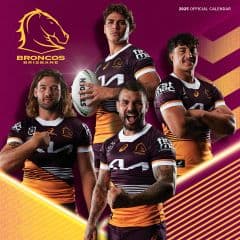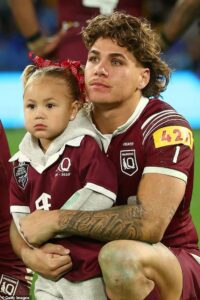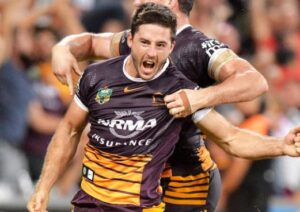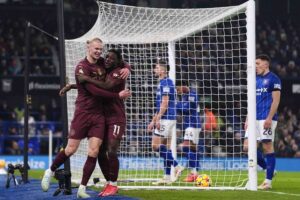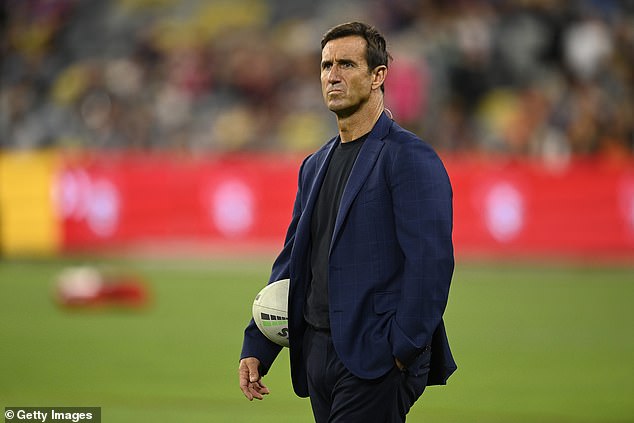
Tension rising : Andrew Johns is angry the Broncos have got an absolute ‘steal which………..
There’s been significant buzz across the rugby league community after recent developments regarding the Brisbane Broncos’ signing of star players, but one name that has dominated the headlines is Andrew Johns. The league legend and NRL Immortal has voiced strong opinions on what he considers to be a “steal” by the Broncos, igniting discussion about the growing imbalance in the league. Johns’ frustration stems from the Broncos’ ability to secure top-tier talent, often without significant financial strain, raising questions about the fairness of the NRL salary cap and its impact on player distribution.
Andrew Johns’ Outburst
Johns is not one to shy away from expressing his thoughts, especially when it comes to the state of rugby league. His recent comments highlight a growing discontent among fans, former players, and current stars alike. Johns, known for his deep understanding of the game, called out the Brisbane Broncos for pulling off what he sees as a heavily one-sided deal, securing one of the competition’s top players at a bargain price.
“It’s an absolute joke,” Johns said during a recent broadcast, visibly frustrated by the news. “The Broncos have got an absolute steal here, and it’s making a mockery of the salary cap system.” His statements have sparked a fierce debate about the current state of the NRL’s recruitment and salary cap rules, with many backing his stance while others see it as part and parcel of a competitive league.
Johns’ concerns, however, go beyond just this individual signing. He seems to be pointing to a broader issue within the NRL: the ability of certain clubs, like the Broncos, to leverage their brand, resources, and connections to secure top-tier talent, often at a price point that leaves other clubs struggling to compete. It’s no secret that the Broncos, as one of the league’s most successful and financially secure teams, have more resources at their disposal than many other clubs. However, the perception that they can consistently pull off these kinds of “steals” has many questioning the effectiveness and enforcement of the NRL’s salary cap.
The Salary Cap Debate
The NRL salary cap has always been a contentious issue. Designed to ensure a level playing field, it theoretically prevents the wealthiest clubs from hoarding the best talent. However, as Johns’ comments highlight, there is growing skepticism about whether the cap is truly working as intended. Teams like the Broncos, Sydney Roosters, and Melbourne Storm have repeatedly managed to secure marquee players, sometimes at reduced rates, sparking allegations of creative accounting or exploitation of loopholes.
Johns isn’t alone in his concerns. Fans from smaller market teams like the Newcastle Knights, Wests Tigers, and St. George Illawarra Dragons have long complained that their clubs struggle to retain homegrown talent, often losing them to bigger clubs offering lucrative deals or more prominent sponsorship opportunities. For these teams, the salary cap feels like a system that punishes them more than it helps them, as they lack the financial clout or brand appeal to attract marquee players.
From Johns’ perspective, the Broncos’ recent acquisition only reinforces the notion that certain clubs are operating with an unfair advantage. “You’ve got clubs doing it tough, trying to build squads from scratch, and then the Broncos come along and pick off the best players for a fraction of what they’re worth. How is that fair?” he asked. His frustration is shared by many who see a growing inequality in the NRL, one that threatens the long-term competitiveness of the league.
Broncos’ Success and Strategy
The Broncos’ recent success both on and off the field is difficult to ignore. Their ability to attract talent is as much about their brand as it is about their location and financial standing. Brisbane is a rugby league heartland, with a rich history and a massive fan base, making the Broncos one of the most attractive destinations for any NRL player. This, combined with strong leadership, a winning culture, and financial resources, has made them a powerhouse in recruitment.
However, what frustrates people like Andrew Johns is the perception that the Broncos are able to secure these players without facing the same financial strain as other clubs. The argument goes that players are willing to take pay cuts to join the Broncos because of the lifestyle, the winning culture, and the exposure that comes with playing for such a high-profile club. This, critics argue, undermines the very purpose of the salary cap, which is supposed to prevent exactly this kind of hoarding of talent.
Johns highlighted the importance of parity in the competition, stating that “The NRL is supposed to be about giving every team a fair shot. But when you have teams like the Broncos able to pull off these kinds of deals, it just feels like the rich are getting richer while the rest of us are left behind.”
What’s Next for the NRL?
Andrew Johns’ comments have reignited the debate about whether the NRL salary cap is in need of reform. Some argue that the cap should be more strictly enforced, with greater transparency around player salaries and club spending. Others suggest that the solution lies in tweaking the cap to allow for more flexibility for smaller market teams, giving them a better chance to compete with the likes of the Broncos and Roosters.
One idea that has been floated in recent years is the introduction of a “luxury tax” system, similar to the one used in American sports leagues like the NBA. Under this system, clubs that exceed the salary cap would be taxed, with the revenue generated redistributed to smaller clubs. This would, in theory, allow wealthier clubs to maintain their spending power while helping to level the playing field for teams that don’t have the same financial resources.
Another potential solution is to increase funding for junior development in smaller markets, allowing clubs to retain their homegrown talent rather than losing them to bigger clubs. This would require a significant investment from the NRL, but it could help to address the growing imbalance in the league.
Conclusion
Andrew Johns’ comments have struck a chord with many within the rugby league community. His frustration with the Broncos’ ability to secure a top player at a bargain price speaks to a broader issue within the NRL: the growing inequality between the league’s wealthiest clubs and the rest. While the salary cap is supposed to ensure parity, it’s clear that the current system is not working as intended for everyone. Whether the NRL will take steps to address these concerns remains to be seen, but one thing is certain: the debate over the salary cap is far from over, and Johns’ outburst may just be the beginning of a larger conversation about the future of the league.
